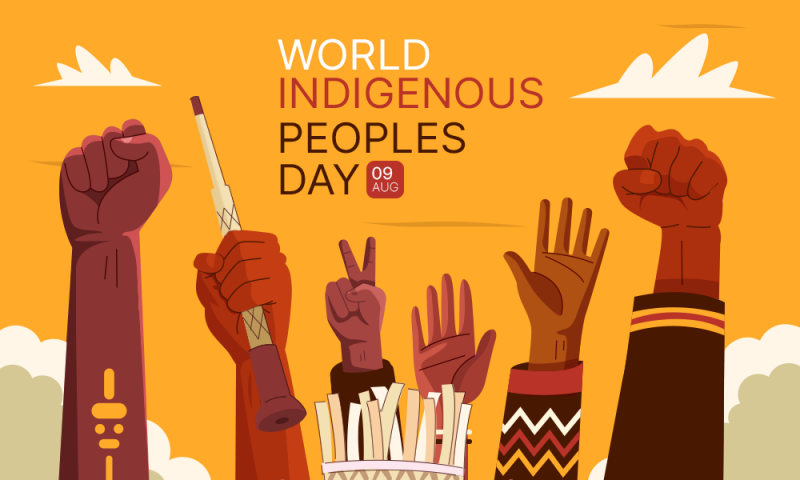Today is World Indigenous Day, and Malaysia is one of the many nations celebrating its native cultures. However, for the 18 Orang Asli groups of Peninsular Malaysia and scores of others in East Malaysia, not enough has changed in terms of their legal standing and standard of living.
The communities experience lower life expectancy, access to healthcare, electricity and running water as well as lower education levels and mean income. The situation was exacerbated by the Covid-19 pandemic and its accompanying movement control orders.
There are a number of reasons why these problems persist and at the heart of them is Orang Asli's land rights. Native customary land rights are key to safeguarding the communities future, but they have repeatedly been trampled on.
This is despite their being descendants of the earliest known inhabitants who occupied the Malay Peninsula before the establishment of the Malay kingdoms.
Orang Asli land is traditionally fertile, and well-preserved but poorly demarcated making it an easy target for developers.
When the community does take a legal route to defend itself, it can find itself up against the combined might of state governments, royalty, forestry departments, developers and the police.
Not to mention, unprincipled lawyers!
Non-recognition of rights still a problem
According to Orang Asli legal expert Bah Tony (Amani Williams-Hunt), the problem is that there is no proper recognition of the Orang Asli land rights.
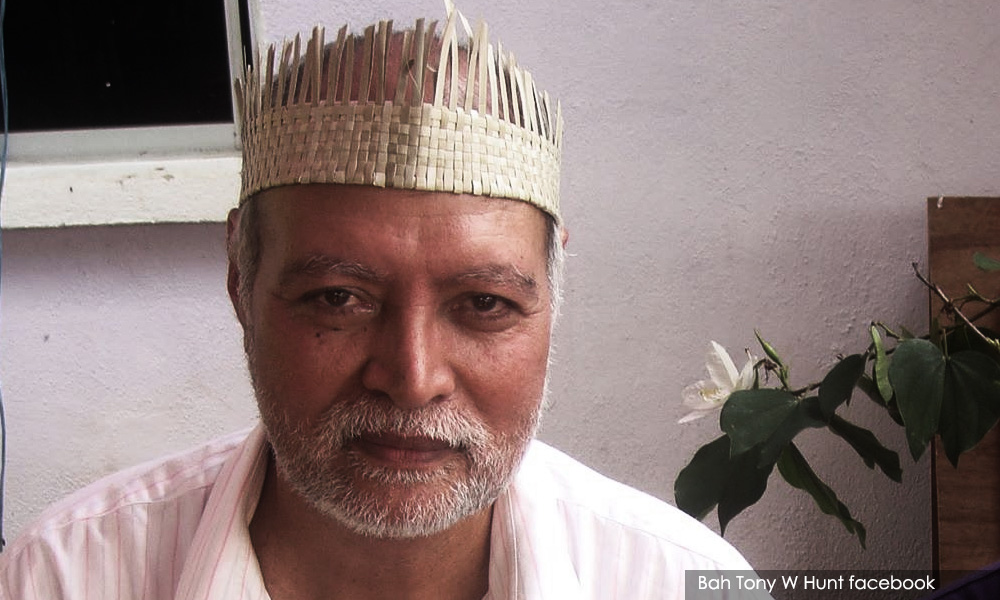
“Act 134 is a Federal legislation that provides for gazetting of Orang Asli areas as Orang Asli areas or as an Orang Asli reserve but this is at the discretion of the state government because the land is under the jurisdiction of the state government.
“As the wording of the article does not make it something that is mandatory, the state can choose whether they want to protect Orang Asli areas or not.
“Land is a scarce commodity, and subject to competition and the state sees it, perhaps, (as being) more beneficial to give land for purposes that can bring more direct economic benefit to the state rather than give it to the Orang Asli,” he told Malaysiakini.
He said the Orang Asli as the first people should have priority, in terms of their rights when it comes to their land.
Their land was taken away for plantations, logging, mining and other developments, leaving them to fend for their own cut off from the resources of the jungle which they had previously depended on for their survival.
No group of politicians has shown urgency in rectifying this situation, said Bah Tony.
“Unfortunately, this has not really been the situation because of that, you see that many state governments are very slow in gazetting Orang Asli areas.
“In fact, many state governments think that the Orang Asli are claiming too much land - the areas that they claim are too big when what the Orang Asli are actually claiming are their traditional areas.
“They don't claim land from other people but land, which rightfully has been their traditional areas. Many of the groups are also nomadic which is another reason for confusion, they occupy different grounds seasonally,” he added.
So, when it comes to the non-recognition of the Orang Asli land rights, then you have threats - from other interests like dispossession, not just from private individuals and private bodies, but also from the government.
“Whenever the government opens up a huge area of land, for whatever project, for whatever purposes, the Orang Asli position is actually threatened.
“There's nothing permanent about Orang Asli land. It's (always) subject to revocation by the government law and I understand in Selangor, it seems that there have been cases where Orang Asli areas have been revoked in the past,” he said.
Temiar lawsuit in Gua Musang
One of the most visible cases in recent times was when the Pakatan Harapan government sued the PAS-led Kelantan administration on behalf of the Orang Asli, pertaining to customary land of the Temiar tribe of the Orang Asli in Pos Simpor, Gua Musang in January 2019.
Then attorney-general Tommy Thomas announced that the federal government had filed a legal action to safeguard the welfare of the Orang Asli, who protested against the encroachment of their customary land.
On Aug 20, 2019, the Kota Bharu High Court denied the Kelantan government's bid to strike out the lawsuit, when it ruled that the court has the jurisdiction to hear the legal action that targeted the PAS-led state government, as well as the state director of the Lands and Mines Department, the state director of the Forestry Department and five private entities as defendants.
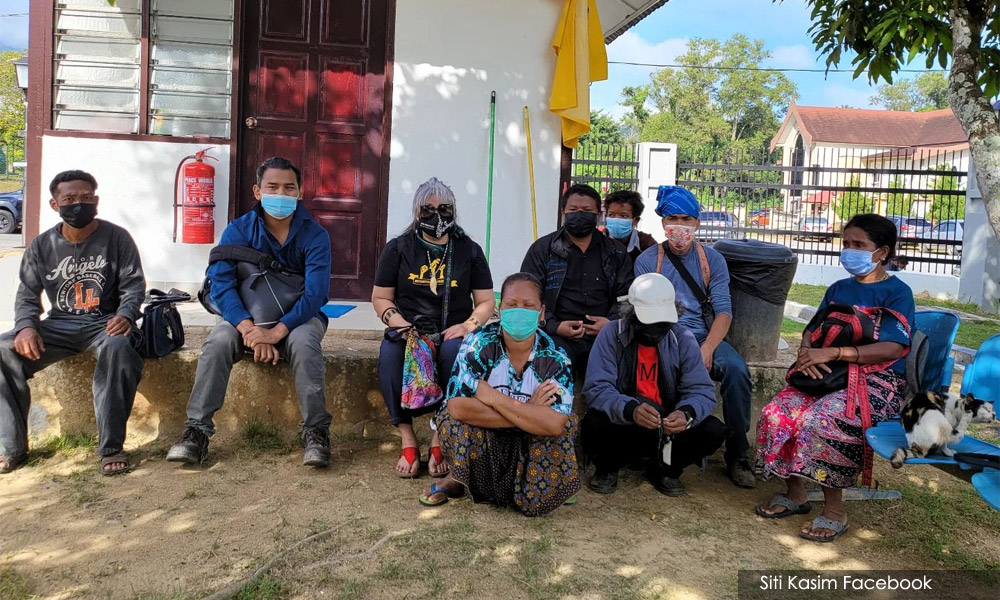
It had sought legal recognition of the Temiar community's native land rights in Pos Simpor, and injunctions to prevent private entities from encroaching on and destroying native land for commercial profit.
The Temiar were fighting loggers for years and setting up blockades, which would be demolished by state government officers or those working for private companies.
Once again, despite a promising start, the Kelantan government successfully appealed to the Court of Appeal to strike out the federal government’s suit.
Sadly, following a shift in federal government power after the Sheraton Move, the new administration and Attorney-General Idrus Harun decided not to pursue an appeal to reinstate a suit on behalf of the Temiar.
Bah Tony put it down to political will, or the lack thereof.
“The government has to start protecting Orang Asli land. Act 134 has to be amended, or a new law on land law is to be enacted for the Orang Asli, which really protects the Orang Asli. Otherwise, it will be challenging. Processes, as you know, are very slow,” he said.
According to him, the Orang Asli Development Department (Jakoa) has undertaken a study to look into the possibility of amending Act 134, but has taken five years to do so and has yet to complete it.
“We're thinking, 'Wow, my goodness, five years is such a long, long, long period in order to do a study'.
“Everybody - NGOs, universities - in the past have proposed what amendments should be made. I don't think they should take that long. They should study the proposal and do the amendment accordingly.
“Unless a moratorium on Orang Asli land (alienation to other interests) is put in place, Orang Asli land will continue to be encroached in this process. In five years, I don't know how much land the Orang Asli will have lost,” he said.
Pos Tohoi tragedy
Not all legal cases are about land rights. One of the most tragic cases involved the disappearance of seven Orang Asli children who went missing from their boarding school SK Pos Tohoi in Gua Musang, Kelantan on Aug 23, 2015.
The seven children fled the school out of fear of being punished by their teacher for bathing in a nearby river without permission.
Two of the children, Noreen Yaakob and Miksudiar Aluj, were found barely alive on Oct 9, 2015, after 47 days.
However, Noreen's younger brother, nine-year-old Haikal and their friends Ika Ayel, nine, Juvina David, seven, Linda Rosli, eight, and Sasa Sobrie, eight, died during their ordeal in the jungle.
All four bodies, with the exception of Sasa's remains which were never found, were buried in a single grave in Kampung Penad, Gua Musang, on Oct 25, 2015.
A joint suit was initially filed on Aug 13, 2018 - with the case defendants including the government and the Education Ministry as well as officers from the Education Department, the Orang Asli Development Department, and the police.
This also includes the officers involved during the search-and-rescue mission.
According to lawyer and Orang Asli activist Siti Kasim, families of the deceased are seeking monetary compensation for “negligence on the part of the authorities that led to the deaths and/or injuries suffered by the children, as well as their parents”.
Additionally, the families are looking to claim declarations to uphold the rights of Orang Asli children and the community - with regard to their education.
The trial dates were initially set for June 12-16 this year but were faced with postponements just before the hearing date as the judge had asked for mediation.
Siti Kasim told Malaysiakini that all parties have gone back to discuss the matter with their respective clients.
“We want the declarations that we requested. But the declaration that we requested is supposed to be ‘global’ in the sense that it should apply to all of the schools.
“The claim for the declarations should be applicable to all schools that involve the Orang Asli children,” she said.
She added that at the moment the declaration appeared to be restricted to just the Pos Tohoi case.
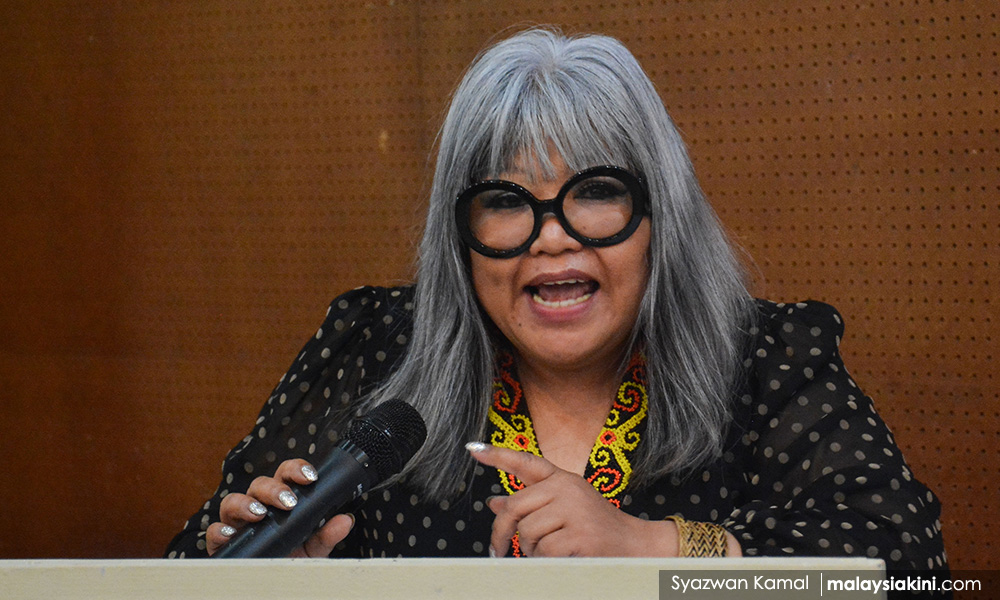
Whether the defendants have decided to enter mediation or not remains to be seen. Should they reject the judge’s proposal, the case will proceed to trial at a later date.
Given that seven years have passed, one wonders how much longer the families will have to wait for justice.
U-turns in customary rights case
In Sarawak (and indeed neighbouring Sabah) there is a significant difference because the native groups are much more numerous. However, this has not translated into a better deal for the rank and file.
Take for example a long-running native customary rights legal battle involving two tracts of land totalling nearly 18,000ha in Kanowit-Ngemah in which the Federal Court on Sept 11, 2019, ruled against the native claimants.
Earlier in May 2011, it had gotten off to a promising start when the High Court sitting in Sibu held that village head TR Sandah Tabau and his community had native customary rights over the entire 5,639ha of land that was leased by the Sarawak government to Rosebay Enterprise Sdn Bhd.
In the case of village head Siew Libau, the area of interest covered 11,822ha. There were initially about nine longhouses that sued Rosebay, but the High Court held that only Siew's longhouses had successfully established native customary rights.
Native customary rights are based on inheritance by virtue of the Iban custom of pemakai menoa and pulau galau.
Pulau galau is the term given to land reserved by a village to forage, hunt or fish. This land is generally left untouched so that the forest can regenerate. Pemakai menoa, meanwhile, is the entirety of the area the village considers its property. It includes the longhouse area as well as the pulau galau area.
However, on Dec 21, 2016, the Federal Court in Putrajaya reversed the decisions of both the Court of Appeal and the High Court, thus denying the principle of native customary rights to Sandah and Siew.
Speaking to Malaysiakini on the case, lawyer Clarice Chan explained that since the final verdict in Sept 2019, the state has changed its laws to explicitly recognise these particular customary rights.
“Right after that case where the decision came up, Sarawak changed their laws to explicitly recognise these particular customary rights - basically, land that is reserved for foraging, for hunting.
“They are now recognized in statute, so, where West Malaysia has the National Land code, we have the Sarawak code, which has been amended to reflect those changes,” said Chan.
She noted that in spite of the changes to the law, the Sandah case had very little room in which to overturn the Federal Court ruling.
“What we can do is try and apply through the statutory process and see if the Land Survey department will nonetheless recognise those rights,” she added.
Decades-long fight
The long-drawn fight between the Johor state government and a group from the Seletar tribe in Stulang Laut exemplifies a classic battle faced by many Orang Asli cases.
The Orang Laut Seletar are among the 18 Orang Asli tribes in Malaysia and this troubled case dates back to December 1993, when the Seletar tribe’s plight first started when they were forced to relocate from Stulang Laut to Kuala Masai in order to make way for development.
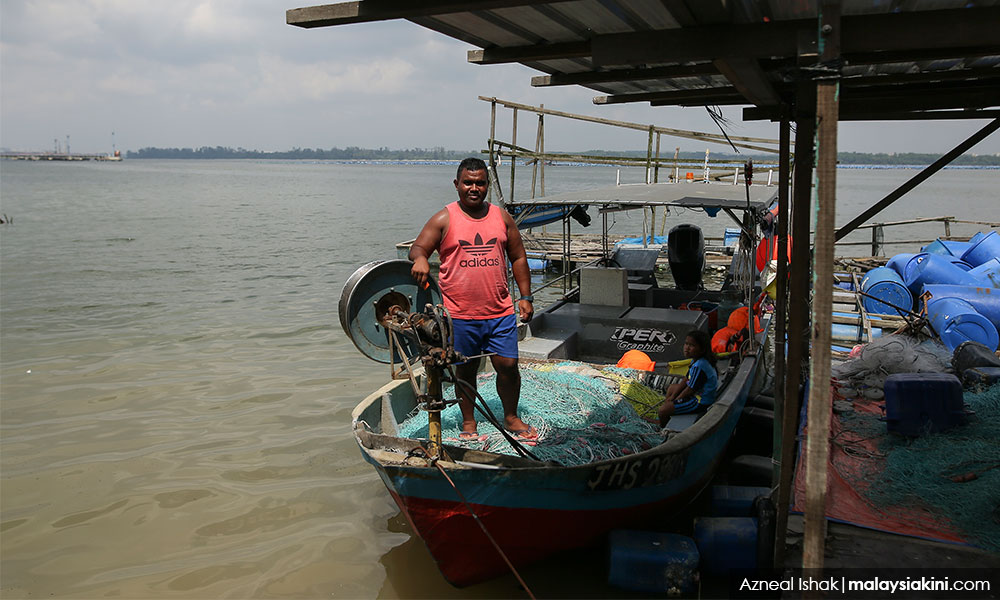
The land they lived on is now occupied by a shopping centre known as The Zon.
In 2005, the Orang Asli sued the government after a series of incidents had occurred. This includes the flattening of a church the tribe had erected in the surrounding waters of Kuala Masai.
After fighting for over a decade, the group had received compensation amounting to RM5.2 million for the eviction which occurred 27 years prior - with land gazetted for the tribe as an Orang Asli settlement.
“The government claims that when (the Orang Seletar) relocated, they were given land - which was true. They were not left high and dry but that land was a far cry from what they used to enjoy when they were there for decades in the heart of Johor Bahru,” said lawyer Tan Poh Lai.
She told Malaysiakini that the different factors were taken into account in the final compensation.
“It was just over RM5 million, but at least it was a meaningful figure because previously, they had wanted to settle for peanuts, which we could not accept.
“The fact is, they (the state government) fought tooth and nail, and they even declined to go along with a court order, which was obtained 11 to 12 years ago,” said Tan.
She said that good legal representation is key for all cases - although particularly important for long-suffering cases such as this where it might take years on end.
“As with all causes, you need good legal representation, and that does not come easily because they (the Orang Asli) are not in a position to hire lawyers, so these lawyers will have to act voluntarily.
“And to find such people who made themselves available is always a challenge - especially these cases that take many, many years,” she said, adding that this particular case took 13 to 14 years to be resolved.
“The law, in that respect, often changes and is not in the favour of the so-called underdog,” she added.
Bah Tony similarly noted that legal costs are often a barrier to the Orang Asli community’s ability to access legal representation.
“The Orang Asli are poor people. Taking their cases to court requires money. Not many of them can afford that.
“Most of the lawyers that have done Orang Asli cases do it on a pro bono basis,” said Bah Tony.
‘Lawyer defrauded Orang Asli' case
It is only natural for a disadvantaged group like the Orang Asli to put their utmost faith into those representing them, especially when going down the legal route.
That’s why the news when it broke was shocking. For the Jakun of Kuala Linggui had secured a substantial compensation sum, only to struggle to get a proper accounting of it.
On Jan 19, 2019, a three-member Court of Appeal bench upheld a Johor High Court decision and ordered a father and son lawyer team to return part of RM38.5 million in compensation given by the Johor government to Orang Asli villagers for the construction of a dam on their land.
The appellate court also upheld the finding that S Kanawagi and Dinesh Kanawagi were liable for breach of their respective fiduciary and contractual duties and conspiring to defraud the Jakun Orang Asli community.
This is because they had used part of the sum, said to be RM7 million, to purchase 27 units of condominiums in Kuala Lumpur.
Of the RM38.5 million, a total of RM22 million was to be held in trust by the Lembah Linggui (Orang Asli) Trust Fund, while RM16.5 million was to be given to Kanawagi and Dinesh's law firm to be paid to the Orang Asli.
The bench, then comprising Idrus Harun, Hasnah Mohamed Hashim and Yeoh Wee Siam, had ordered an independent auditor to be appointed by the court to assess the damages.
The roots of the case lay in 1994 when the Johor state government entered into an agreement with the Singapore government with regards to the Linggiu Dam for it to build a water catchment facility to supply water to Singapore.
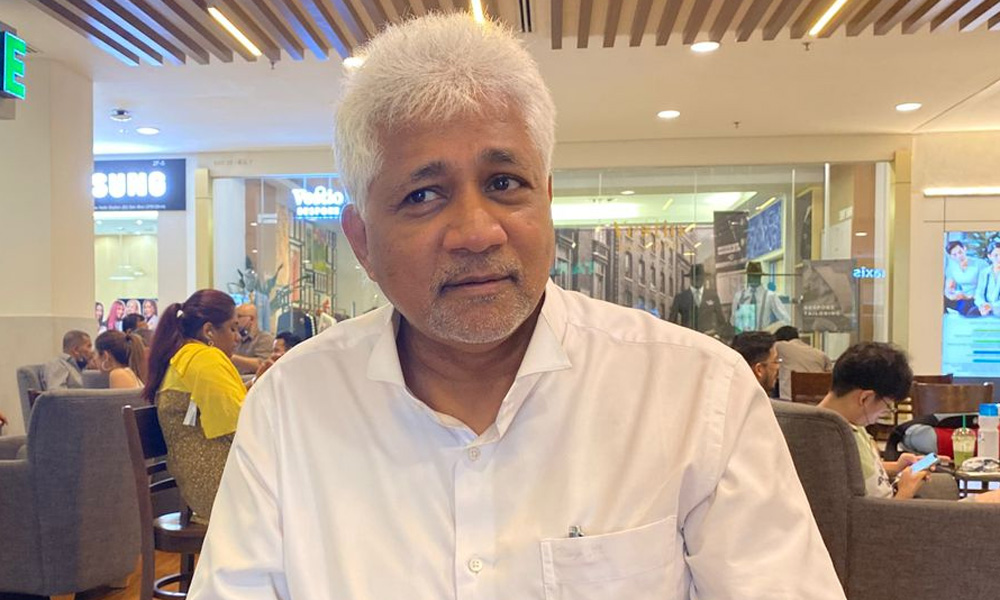
Lawyer G Ragumaran, who had represented the Jakun community in the case, recalled that he had gotten involved in the case shortly after starting his own practice.
“That dam is where the Jakun community does their hunting and get their fish, so with this agreement, their home and their source of food got taken away.
“When I had started my own practice (in March 2004), I was contacted by Centre for Orang Asli Concerns director Colin Nicholas, who said he wanted to see me and discuss this Orang Asli case, and (asked) whether I was keen.
“There is a case of Orang Asli in which the Johor state government had paid a lot of money, and the Orang Asli in Johor were in the dark,” he told Malaysiakini, adding that he was then asked to represent the Jakun tribe involved in the case.
“So I was asked to do two things, firstly, was to represent these Orang Asli and secondly, I was told they had a representative, named Saling bin Laut, who was liaising with the lawyers, but the lawyers were not cooperating, which led to the lodging a complaint with the Disciplinary Board of the Bar Council and the police, against their lawyer.
"Because of this complaint, the Bar Council set up an Investigative Tribunal (known as Disciplinary Committee now) to investigate the case and to find out if there was any misconduct,” recalled Ragumaran.
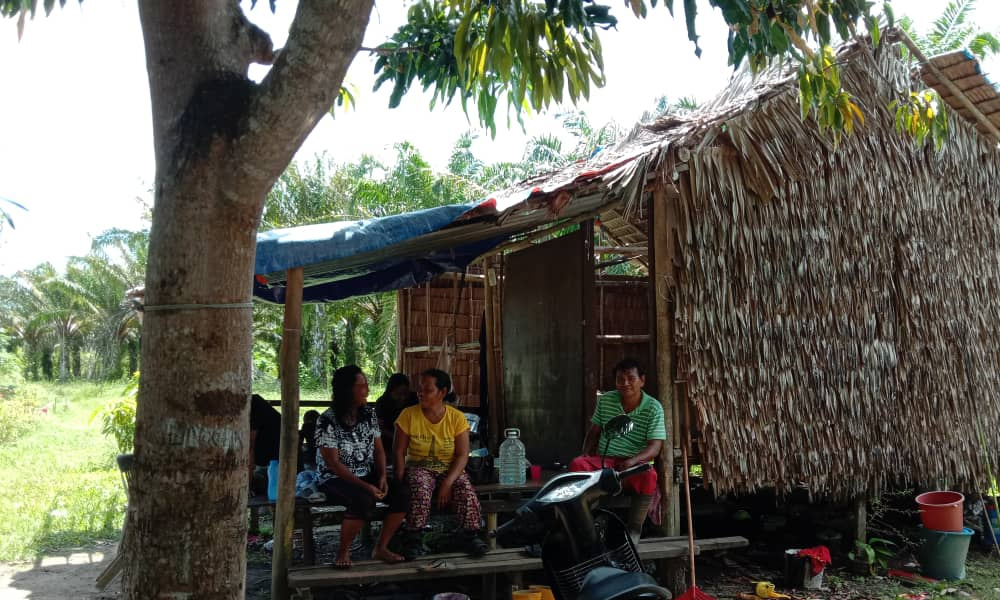
In describing the character of the Jakun tribe which he represented, Ragumaran remarked that members of the tribe were so good-natured that there were allegations that the lawyer had coached his witnesses.
“One thing I must tell you is, as far as I see for the Orang Asli (tribe) that I represent, they do not lie. I can even go to the extent of saying that they do not know how to lie.
“They are so straight, so honest - you can easily cheat them. So naive. In fact, when they testified in court, it was something used in the judgement, how honest and naive they are and then there were allegations against me that was coaching the witnesses,” said Ragumaran.
The Kuala Linggui case remains a high watermark for a financial payout to the Orang Asli, and yet the many troubles that followed showcase yet another challenge they face.
